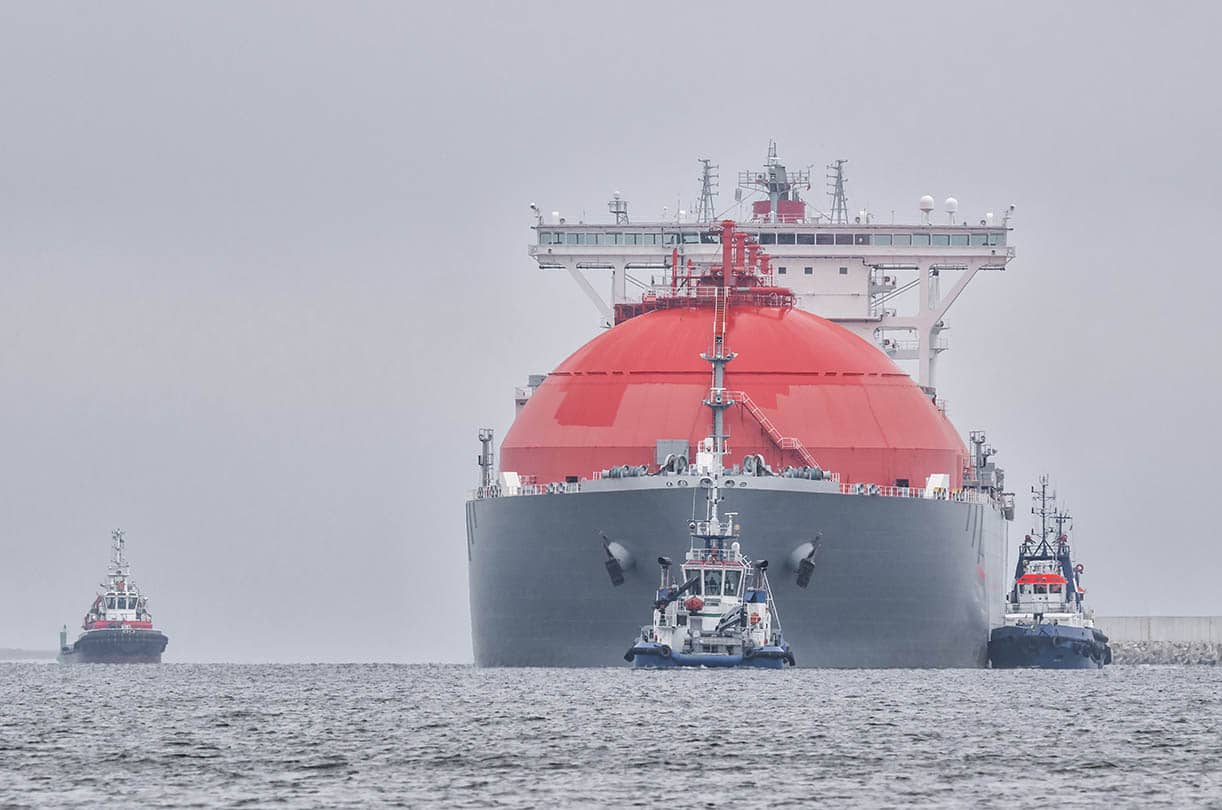Australian Dollar: Sanctions on Russia Could Boost Demand for Aussie Commodities
- Written by: Gary Howes

Above: LNG is Australia's third-largest commodity export.
A wide package of sanctions on Russia in the event of an invasion of Ukraine could boost Australia's terms of trade, according to new analysis.
With financial markets proving highly sensitive to Ukraine-Russia tensions analysts at Crédit Agricole have considered what any conflict in Eastern Europe poses for Australia's Dollar and economy.
They find that the immediate impact is via the well-understood risk channel: when stock markets are selling off in response to rising tensions the Australian Dollar tends to lose value against the likes of the Euro, U.S. Dollar and Pound.
Likewise, an easing of tensions as is the case on February 15, is supportive of the high-beta Australian Dollar.
But any sanctions placed on Russian exports could support the Australian currency via the terms of trade channel.
"More important for the AUD and the Australian rates market at the moment are Russian-US tensions over Ukraine. If Russia were to invade Ukraine, G7 sanctions on Russian exports would soon follow," says Valentin Marinov, Head of G10 FX Strategy at Crédit Agricole.
Above: GBP/AUD (top) and AUD/USD (bottom).
- GBP/AUD reference rates at publication:
Spot: 1.8938 - High street bank rates (indicative band): 1.8275-1.8408
- Payment specialist rates (indicative band): 1.8768-1.8843
- Find out about specialist rates, here
- Set up an exchange rate alert, here
Marinov says such sanctions would have a negative impact on the supply of several commodities in global markets as Russia is the world’s biggest exporter of natural gas, and the second-largest exporter of oil.
The analyst says the country also supplies nearly a tenth of the world’s aluminium and copper and produces a range of other metals, including 43% of the world’s palladium while also being the world’s largest exporter of wheat.
The supply of Russian commodities into the global economy would not cease completely in the event of G7 sanctions on Russia as there would be other buyers, particularly China.
Nevertheless Marinov says Australia is a substitute exporter of several of the commodities Russia produces, including wheat, copper, natural gas and aluminium.
As such Marinov says Australia "would see a large and positive terms of trade shock from western-led sanctions against Russian exports."
Above: Australia's trade balance went into positive in 2018 and has since reached new records in 2021 courtesy of surging commodity prices and exports.
While this might offer some support to the Australian currency Crédit Agricole caution on betting the Aussie currency will be an all-out winner in the event of a Russian invasion of Ukraine and any subsequent sanctions.
"Risk-off trading would dominate the AUD, which remains one of the G10 currencies the most sensitive to risk sentiment," says Marinov, adding "China would likely ignore western-led sanctions against Russian exports. China also continues with unofficial bans on Australian agricultural and coal exports."
Crédit Agricole's base case scenario nevertheless envisages a "grind higher" by the currency as a strong global recovery materialises in 2022 and supports higher commodity prices.






